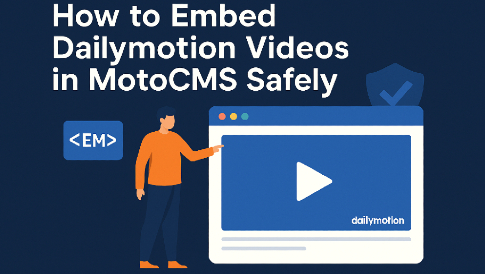Navigating The Role of POS Systems in eCommerce
When you think of a point-of-sale (POS) system, you probably imagine the cash register at a retail store, accompanied by a cash drawer and barcode scanner. However, a POS system is also crucial for eCommerce stores, facilitating seamless payments for online customers buying goods or services through websites or mobile apps. eCommerce sales accounted for 16.2% of all retail sales in the US in Q3 2024, highlighting the growing competitiveness in the eCommerce industry and the need for the right technology. Luckily, this article will explore the five key roles of a POS system for eCommerce stores.
POS System – Processing Payments
The right POS system will process customer payments seamlessly regardless of the customer’s chosen payment method, such as a credit or debit card, a mobile wallet like Apple Pay, and buy now, pay later options like Klarna. It will also comply with PCI DSS standards and offer security features like encryption and tokenization.
When choosing your POS provider, it’s essential to compare the payment processor’s transaction fees to find the most cost-effective option for your eCommerce store. For those using Magento, finding the best managed Magento Hosting is equally critical to ensure seamless integration and performance.
In addition, some POS systems have an integrated payment system, which connects the payment processing function with other essential business systems and software.
Updating Inventory Data In Real-Time
The right POS system will synchronize your inventory data in real-time so that you always have an accurate record of your stock across all sales channels, including your eCommerce website or your physical store.
Accurate inventory levels ensure that retailers avoid out-of-stock and overstock situations, which improves customer satisfaction and reduces lost sales by ensuring that popular items are always available. In fact, 65% of consumers said they switched to a new brand because an item was out of stock.
In addition, some POS systems can automate inventory management tasks such as reordering. By setting automatic reorder points, your POS system will automatically place an order when inventory falls below a specified point, ensuring timely stock replenishment.
Integrating All Platforms
The right POS system should seamlessly integrate with your existing business software, such as your eCommerce platform, inventory management system, payment processor, marketing tools, customer relationship management (CRM) tools, and more.
Ensuring all platforms work seamlessly together means you can manage sales, track inventory, and view customer data all in one place. This reduces the need for manual entry and minimizes the risk of human errors.
Supporting All Sales Channels
Your customers don’t just shop in one place. They might make a purchase from your online store, your mobile app, your social media platform, or from your checkout counter in-store.
The right POS system should support all these sales channels and offer customers a seamless omnichannel shopping experience. This means they will get a consistent experience with your brand regardless of what sales channel they use.
Omnichannel POS software can create customer profiles with information from all sales channels and make it possible for customers to order products online and pick them up in-store, return orders online or in-store, and buy both physical and digital gift cards.
It’s important to understand the difference between omnichannel and multichannel. A multichannel approach is when a brand uses multiple sales channels, but there’s no coordination between them. Whereas an omnichannel approach sees all sales channels work together seamlessly.

Image Source: Multichannel Merchant
Providing Data And Analytics
The right POS system provides detailed data and analytics on sales, inventory, customer behavior, and more. This data is essential for making data-driven business decisions about pricing strategies, future growth, and marketing promotions.
For example, you get a complete view of what products are popular with your customers. By identifying best-selling products and customer trends, you can create marketing campaigns that promote and upsell these products. This is an effective way to boost your average order value and generate more revenue.
In addition, some POS systems offer customizable reports, allowing you to focus on the metrics that matter most to your eCommerce business, such as conversion rate, cart abandonment rate, and traffic sources.
Do You Understand Why Your eCommerce Store Needs A POS System?
POS systems are no longer just helpful to have; they are a necessity for eCommerce stores that want to succeed in a competitive industry.
With the right POS system in place, you can streamline your eCommerce operations, improve customer satisfaction, gain valuable business insights, manage sales across multiple channels, and keep track of your inventory.
Remember that not all POS systems offer the same functionalities and features, so take time to do research and find one that best fits your business needs.




Leave a Reply